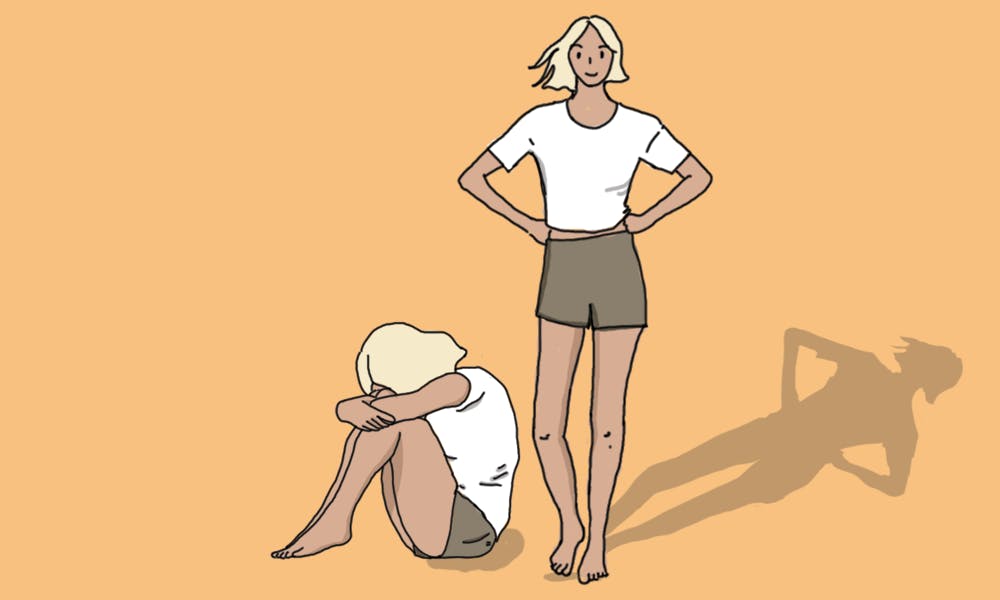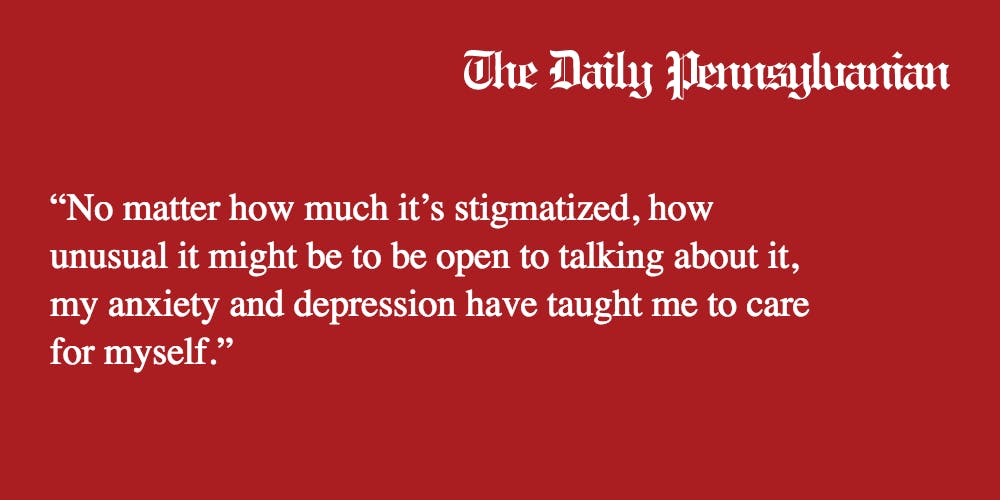
During my first week at Penn, someone told me I’d never be happy here.
I was sitting in the Quad, complaining to some friends about how I hadn’t met that many people in college and felt lonely. That was when one of them turned to me and said it.
For a while, I thought he was right.
Every day was the same. I’d nibble on a bagel or croissant, go to English classes where I was the only freshman, where I was too nervous to introduce myself and crafted scripts before I spoke in class, I’d go to dinner with a few friends and eat whatever I could stomach, and spend hours in the library. Embarrassingly enough, on Friday nights, the security guards at Van Pelt would have to ask me to leave, because I’d stay there until closing. On the weekends I’d be too tired to wake up or too anxious not to — it felt like everyone was at parties where I felt unwelcome and unsafe, and I didn’t know what to do with myself.

Eventually, somewhere in this monotonous routine, I realized my mental health is something I need to fight for. There’s not much hand-holding at Penn, and maybe there should be. Regardless, I learned to look out for myself. Admitting that I was struggling with anxiety and that I might be depressed was hard, but seeking help was harder. It’s one thing to know that you want to talk to someone. Picking up the phone and calling Counseling and Psychological Services, getting a referral, and Google Maps-ing different doctors’ offices is another. It took time, but I did it.
We tend to think of mental illness as weakness. When I tell people I’m going to therapy, they don’t know how to react. I usually just say it’s a doctor’s appointment to avoid the awkwardness. When I open up about my struggles, it makes them uncomfortable. Taking care of my mental health is harder than any class on my schedule. Still, that fight has made me stronger, and I’m not embarrassed about it.
I have to keep my sleep schedule in check, visit the gym at least three times a week, go to therapy, monitor my eating habits, and comfort myself when my thoughts spin so fast that I can’t fall asleep. I plan my days around my mental health. That’s become my first priority.
This battle, however challenging and confusing, has taught me how to take care of myself, how to be an adult, how to live with mental illness. No matter how much it’s stigmatized, how unusual it might be to be open to talking about it, my anxiety and depression have taught me to care for myself. They’ve forced me to grow.
In 2008, Paul Keedwell published “How Sadness Survived: The Evolutionary Basis of Depression,” a book on the ways in which depression can make people stronger. While controversial, Keedwell makes hard-hitting points.
“Essentially, depression can give us new and quite radical insights — it can give us a way of responding effectively to challenges we have in life. In its severe form it is terrible and life-threatening, but for many it is a short-term painful episode that can take you out of a stressful situation for a while. It can help people to find a new way of coping with events or your situation — and give you a new perspective, as well as making you more realistic about your aims,” he said.
None of this is to say that mental illness is desirable, or as manageable for everyone as it is for me. It is important that we individualize the way we talk about mental health. I’m lucky enough to have a family that can pay for therapy and friends here who look out for me.
My point is that in the mess that is navigating Penn’s mental health resources, in working hard to watch out for yourself, in something that so many students on this campus have to deal with, there’s a silver lining. Struggling with mental illness isn’t something to be ashamed of. It has actually made me stronger.

ISABELLA SIMONETTI is a College freshman from New York. Her email address is simonetti@thedp.com. “Simonetti Says” usually appears every other Sunday.
The Daily Pennsylvanian is an independent, student-run newspaper. Please consider making a donation to support the coverage that shapes the University. Your generosity ensures a future of strong journalism at Penn.
Donate



